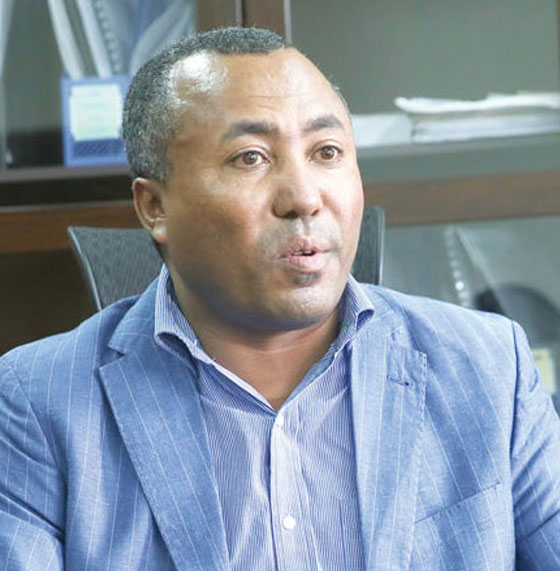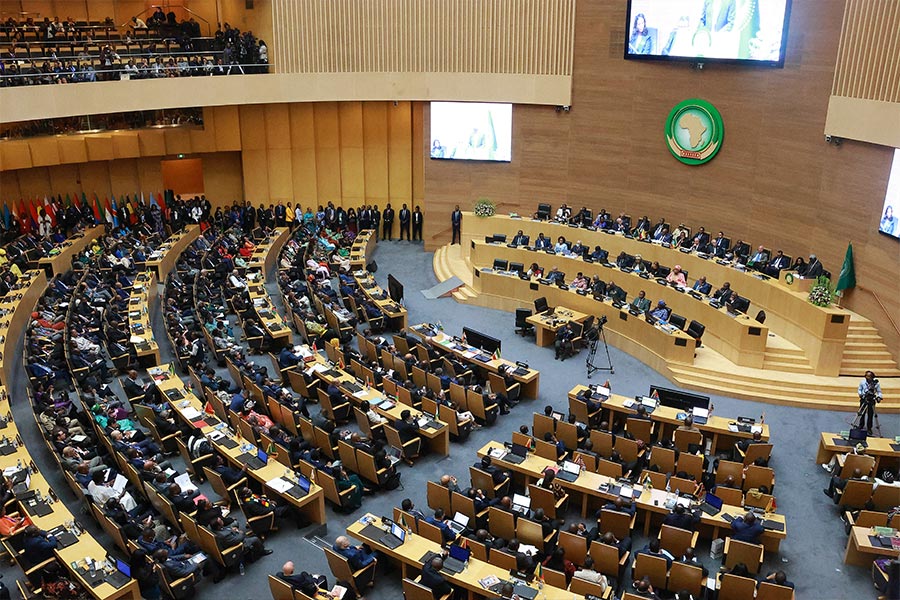
Commentaries | May 18,2019
Sep 17 , 2022
By Donald P. Kaberuka
There was a time, not so long ago, when an HIV diagnosis was a death sentence. AIDS, together with tuberculosis and malaria, killed millions of people and overwhelmed health systems worldwide – especially in Africa. But the world came together and fought back. The Global Fund to Fight AIDS, Tuberculosis, and Malaria, established in 2002, is an unparalleled success story. Cooperation between developed and developing countries, the private sector, civil society, and affected communities has saved 44 million lives, and the combined death rate from these three diseases has been reduced by more than half.
Saving this many lives has had a huge economic impact. The Global Fund estimates that an investment of one dollar through the health programs it supports will result in 31 dollars in health gains and economic returns over three years. And since most of its investments are in Africa, the benefits will spread across the continent.
But the COVID-19 pandemic curtailed this rapid progress. While the death rate on the continent has not been as catastrophic as many feared, the pandemic has had a profoundly negative impact on Africa’s health systems and on the fight against AIDS, TB, and malaria. Testing, diagnosis, and treatment for these diseases have been severely affected, threatening the gains made in previous decades. Worldwide deaths from malaria, for example, increased by 13pc in 2020, to a level not seen since 2012. Unless things change, the gap in health and economic outcomes between Africa and the rest of the world will widen.
Overseas aid remains vital. If we are to reverse the losses created by the pandemic and continue to do lifesaving work, the Global Fund needs to meet its fundraising target of 18 billion dollars over the next three years. The Fund’s Replenishment Conference this month will bring together representatives from donor countries, the private sector, and civil society groups seeking to renew commitments and ensure overarching support for the fight against AIDS, TB, and malaria.
But domestic investment is also crucial for securing health sustainability, especially given the impact of recent global shocks on both advanced and emerging economies. To this end, the Global Fund supports initiatives like the African Union’s African Leadership Meeting (ALM), which advocates for increased domestic resources for health.
While the Global North can look forward to the post-COVID economic recovery, Africa is still lagging behind the rest of the world in vaccine access and uptake. The continent will need more time to recover fully from the pandemic.
How, then, in the face of an uncertain economic outlook – with African GDP dropping, inflation rising, and food and energy costs soaring – can governments realistically increase health spending?
While there is no silver bullet, we have identified several actions governments can take to promote investment in the health sector.
For starters, economic recovery is a virtuous circle: GDP growth enables greater investment in health, and a healthier population is more productive. The next few years could be challenging as the longer-term consequences of the pandemic and the ripple effects of the war in Ukraine adversely affect investment and trade. But fully implementing initiatives like the African Continental Free Trade Area (AfCFTA) could help reduce Africa’s dependency on food and fuel imports.
Another way to prop up local health systems would be to increase tax revenues. Many African governments face a significant “tax gap” – the difference between what their tax laws should, in theory, deliver and what governments manage to collect. Removing loopholes and reinforcing the efficacy of tax administration are powerful ways to make more money available for health.
Governments should also allocate more funds to public health. Very few African countries currently devote 15pc of their national budgets to the health sector – the target set by the 2001 Abuja Declaration. This, in turn, impedes their ability to ramp up efforts to eradicate AIDS, TB, malaria, and other epidemics and thus reduces their chances of achieving the 2030 Sustainable Development Goals (SDGs).
The private sector must do its part as well, whether through corporate taxes, employer-led health insurance, or workplace health schemes. Private companies benefit enormously from a healthier population and – as we have seen during the COVID-19 pandemic – can suffer dramatic losses when infectious diseases run wild.
Of course, it is also important to make health spending more efficient. This would involve coordination between finance and health ministries. Finance ministries can support planning, budgeting, and spending by providing a clear indication of available resources over the medium term and by being responsive to changing needs, including health emergencies. Meanwhile, health ministries can design more streamlined and cost-effective public programs.
Pulling these levers requires political leadership and sustained effort. The Global Fund directly supports African communities and governments as they work to strengthen local health systems. But only a combination of international aid and domestic financing can turbocharge the efforts to eliminate AIDS, TB, and malaria by 2030. And only by ending these epidemics can we propel Africa’s economies, bolster the world’s defenses against future outbreaks, and free millions from the burden of disease.
PUBLISHED ON
Sep 17,2022 [ VOL
23 , NO
1168]


Commentaries | May 18,2019

Radar | Apr 13,2025

Radar | Aug 07,2021

Fortune News | Jun 05,2021

Viewpoints | Feb 25,2023

View From Arada | Feb 24,2024

Commentaries | Dec 14,2019

Radar | Sep 10,2021

Viewpoints | Dec 17,2022

Radar | Sep 19,2020

Photo Gallery | 178749 Views | May 06,2019

Photo Gallery | 168945 Views | Apr 26,2019

Photo Gallery | 159788 Views | Oct 06,2021

My Opinion | 137107 Views | Aug 14,2021
Commentaries | Oct 25,2025

Dec 22 , 2024 . By TIZITA SHEWAFERAW
Charged with transforming colossal state-owned enterprises into modern and competitiv...

Aug 18 , 2024 . By AKSAH ITALO
Although predictable Yonas Zerihun's job in the ride-hailing service is not immune to...

Jul 28 , 2024 . By TIZITA SHEWAFERAW
Unhabitual, perhaps too many, Samuel Gebreyohannes, 38, used to occasionally enjoy a couple of beers at breakfast. However, he recently swit...

Jul 13 , 2024 . By AKSAH ITALO
Investors who rely on tractors, trucks, and field vehicles for commuting, transporting commodities, and f...

Oct 25 , 2025
The regulatory machinery is on overdrive. In only two years, no fewer than 35 new pro...

Oct 18 , 2025
The political establishment, notably the ruling party and its top brass, has become p...

Oct 11 , 2025
Ladislas Farago, a roving Associated Press (AP) correspondent, arrived in Ethiopia in...

Oct 4 , 2025
Eyob Tekalegn (PhD) had been in the Governor's chair for only weeks when, on Septembe...

Oct 25 , 2025 . By YITBAREK GETACHEW
Officials of the Addis Abeba's Education Bureau have embarked on an ambitious experim...

Oct 26 , 2025 . By YITBAREK GETACHEW
The federal government is making a landmark shift in its investment incentive regime...

Oct 29 , 2025 . By NAHOM AYELE
The National Bank of Ethiopia (NBE) is preparing to issue a directive that will funda...

Oct 26 , 2025 . By SURAFEL MULUGETA
A community of booksellers shadowing the Ethiopian National Theatre has been jolted b...